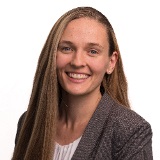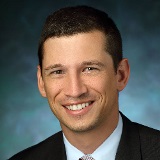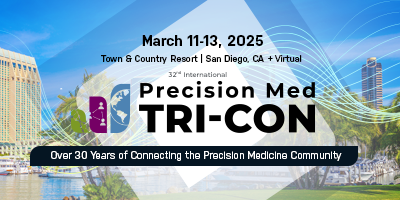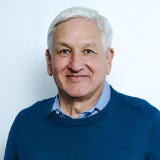Cambridge Healthtech Instituteの第4回年次
Spatial Biology and Single-Cell Multiomics
空間生物学とシングルセルマルチオミクス
Adding a New Dimension to Multiomic Analysis
マルチオミクス解析に新たな局面を加える
2025年3月11日 - 12日 PST(米国太平洋標準時)
3月11日(火)
7:00 amRegistration and Morning Coffee
PLENARY KEYNOTE SESSION: THE PHARMACEUTICAL INDUSTRY AND PRECISION MEDICINE
プレナリーセッション(基調講演):製薬業界と精密医療
8:05 amPlenary Keynote Introduction (Sponsorship Available)
The Pharmaceutical Industry and Precision Medicine
Edward Abrahams, PhD, Former President, Personalized Medicine Coalition
Personalized or precision medicine depends upon linking prescribed therapies to diagnostics so that the right patient gets the right drug at the right time. Yet bringing the therapeutics and diagnostics together does not come easily as the pharmaceutical and diagnostic industries do not share the same business models or cultures. This panel discussion will explore what pharmaceutical executives look for when partnering with colleagues in diagnostics to develop targeted therapies.
9:30 amGrand Opening Refreshment Break in the Exhibit Hall with Poster Viewing
SPATIAL PROFILING TO STUDY DISEASE BIOLOGY
空間プロファイリングによる疾患生物学研究
Spatial Intelligence in Drug Discovery, Diagnosis, and Interventions: Use Cases in Cancer and Neurological Disorders
 Stephen T. C. Wong, PhD, Chair & Professor, Houston Methodist Hospital and Weill Cornell Medical College
Stephen T. C. Wong, PhD, Chair & Professor, Houston Methodist Hospital and Weill Cornell Medical College
Recent advances in spatial biology, multiplex imaging, and artificial intelligence (AI) are transforming drug discovery, diagnosis, and therapeutic interventions. These technologies provide unprecedented insights into the spatial architecture of tissues, revealing the molecular and cellular interactions that drive disease pathogenesis and therapeutic responses. To harness this potential, we developed a spatial intelligence pipeline that integrates these technologies with experimental biology and multimodal clinical data to identify tumor heterogeneity, immune interactions, drug resistance, neuroinflammation, and therapeutic targets. Through case studies in oncology, Alzheimer's disease, and stroke, we demonstrate how spatial intelligence is addressing critical challenges in precision medicine.
Mapping Alveolar-Fibrotic Boundaries: Insights from High-Resolution Spatial Transcriptomics
 Nicholas Banovich, PhD, Associate Professor and Director, Division of Bioinnovation and Genome Sciences, TGen
Nicholas Banovich, PhD, Associate Professor and Director, Division of Bioinnovation and Genome Sciences, TGen
Pulmonary fibrosis (PF) is a chronic, progressive disease that represents the final stage of many interstitial lung diseases (ILDs). Using spatial transcriptomic technologies, we investigate the molecular dysregulation at boundaries between regions of advancing fibrosis and structurally normal alveoli. These results provide key insights into the pathobiology of PF.
Single-Cell and Spatial Multiomics Analysis Reveals Increased Chromatin Accessibility of Specific Transcription Factor Motifs in Activated Tregs
 Chi-Ming Li, PhD, Senior Principal Scientist, Therapeutic Discovery, Amgen
Chi-Ming Li, PhD, Senior Principal Scientist, Therapeutic Discovery, Amgen
Regulatory T (Treg) cells are primarily a subset of CD4+ T cells with well-known roles in immune homeostasis. We utilized single-cell RNA-sequencing to reveal Treg heterogeneity and denoted that signature genes of Treg cells in the activation states enriched with transcriptional or chromatin DNA binding factors, suggesting that chromatin remodeling or transcriptional regulation may play a role in activation. We further performed single-nucleus multi-omics analysis and identified enrichment of binding motifs for specific transcription factor (TF) superfamily in Tregs upon stimulation. Lastly, CUT&RUN, gene perturbation, and spatial ATAC-seq confirmed that the members of the identified TF family regulate selective molecular features in activated Treg cells.
11:50 amSponsored Presentation (Opportunity Available)
12:20 pmSession Break
 LUNCHEON PRESENTATION: From Biorepository to Breakthroughs: Accelerating Development with Spatial and Transcriptomic Analyses
LUNCHEON PRESENTATION: From Biorepository to Breakthroughs: Accelerating Development with Spatial and Transcriptomic Analyses
 Shawn Fahl, VP Lab Operations, Cell Services & R&D, Biospecimens, Discovery Life Sciences
Shawn Fahl, VP Lab Operations, Cell Services & R&D, Biospecimens, Discovery Life Sciences
Therapeutic strategies targeting various cell types within the tumor microenvironment, including targeted tumor therapies, immune checkpoint inhibitors, and angiogenesis inhibitors, have underscored the need to understand the complexity of the tumor microenvironment at scale within specific oncological indications to inform new therapy efficacy. We have established a large, highly annotated biorepository, consisting of solid tissue samples in multiple matrices, to streamline and accelerate drug development. We have implemented multiple workflows focusing on AI-powered pathology and retrospective clinical biomarker testing to stratify biospecimens for cohort selection. These cohorts are further amendable to unbiased spatial and single cell transcriptomic analyses, generating a substantial data repository for current and future therapy development.
12:55 pmSession Break
SPATIAL BIOLOGY: MARKET PROJECTIONS AND FUTURE TRENDS
空間生物学:市場予測と将来動向
1:20 pmChairperson’s Remarks
Spatial Biology: Market Projections, Clinical Applications, and Future Trends
 Rebecca Burnham, PhD, Senior Product Manager, DeciBio Consulting LLC
Rebecca Burnham, PhD, Senior Product Manager, DeciBio Consulting LLC
This presentation will explore the rapidly evolving field of spatial biology, focusing on its market dynamics, clinical applications, and future trends. Key points include analysis of market growth projections and regional trends; examination of spatial biology's impact on oncology research, neurodegenerative disease studies, and drug discovery; and discussion of future challenges, including the integration of AI and machine learning, standardization efforts, and ethical considerations in molecular profiling.
Using Spatial Biology and Single-Cell Analysis to Enable a Better Understanding of Biological Pathways
 Moving beyond Histology: Bringing Spatialomics to the Clinic to Predict Cancer Progression in Barrett’s Esophagus
Moving beyond Histology: Bringing Spatialomics to the Clinic to Predict Cancer Progression in Barrett’s Esophagus
 Emmanuel Gorospe, M.D., MPH, FACG, FASGE, Gastroenterology Medical Director, Castle Biosciences
Emmanuel Gorospe, M.D., MPH, FACG, FASGE, Gastroenterology Medical Director, Castle Biosciences
Advances in spatial biology are expanding our knowledge of diseases, enabling us to look deeper into tissue structures to identify molecular changes before they are diagnosed by standard histopathology. These advances are making personalized medicine possible and hold the promise of improving patient care. This talk will explore the development and use of a spatialomics-based test that is guiding management of patients with Barrett’s esophagus by predicting the risk of progression to esophageal cancer.
2:40 pmSponsored Presentation (Opportunity Available)
2:55 pmRefreshment Break in the Exhibit Hall with Poster Viewing (Sponsorship Opportunity Available)
PLENARY KEYNOTE SESSION: DRIVING INNOVATION IN PRECISION MEDICINE: CEO PERSPECTIVE
プレナリーセッション(基調講演):精密医療におけるイノベーションの推進:CEOの視点
Patient-Centric Innovation-Redefining At-Home Health Experiences
 Peter Foley, CEO and Founder, LetsGetChecked
Peter Foley, CEO and Founder, LetsGetChecked
In this fireside chat, Peter Foley, CEO and founder of LetsGetChecked, will explore the mission and vision that have driven the company’s rapid growth and innovation in home health management. He will share insights into the journey of scaling from a direct-to-consumer model to a robust business-to-business platform, addressing the challenges of integrating health insights and advanced clinical diagnostics with exceptional customer care. From immunoassays and clinical chemistry to genomics, Peter will discuss how LetsGetChecked leverages cutting-edge technologies to empower precision medicine at scale, delivering tailored healthcare solutions that meet the unique needs of millions of individual patients. This conversation will highlight the transformative role of precision medicine, patient-focused care models, and innovative digital platforms in shaping a more connected and responsive healthcare ecosystem that delivers measurable value for all stakeholders.
5:00 pmWelcome Reception in the Exhibit Hall with Poster Viewing
6:00 pmClose of Day
3月12日(水)
7:30 amRegistration and Morning Coffee
PLENARY KEYNOTE SESSION: INVESTING IN PRECISION MEDICINE INNOVATION
プレナリーセッション(基調講演):精密医療のイノベーションへの投資
8:05 amPlenary Keynote Introduction (Sponsorship Available)
9:00 amTransition to Sessions
SINGLE-CELL SPATIAL BIOLOGY
シングルセル空間生物学
9:05 amChairperson’s Remarks
AI-Enabled Single-Cell Morphological Analysis in Multidimensional Real and Feature Space Using Image-Guided Cell Sorters
.tmb-0.jpg) Yuhwa Lo, PhD, Professor, Electrical & Computer Engineering, University of California, San Diego
Yuhwa Lo, PhD, Professor, Electrical & Computer Engineering, University of California, San Diego
Using image-guided cell sorting systems supported by AI, we analyze morphological features and identify morphological biomarkers to relate cell morphologies to their genomic and proteomic characteristics and predict cell fate and detect cell histories, enabling the system to analyze the past, current, and future characteristics of cells. Hardware advances will also be discussed as they are key to generating high quality data for AI learning.
Mouse FFPE CODEX/Phenocycler Profiling Lends Insight into Nanoparticle Reprogramming of Melanoma
 Joel C. Sunshine, MD, PhD, Assistant Professor, Dermatology, Pathology and Biomedical Engineering, Johns Hopkins School of Medicine
Joel C. Sunshine, MD, PhD, Assistant Professor, Dermatology, Pathology and Biomedical Engineering, Johns Hopkins School of Medicine
A major gap in spatial proteomics is the lack of verified mouse antibodies for application to mouse models of disease. Here, we present a novel CODEX/PhenoCycler panel of 28 validated antibodies for murine FFPE tissues. We will discuss our workflow and analysis pipeline and present data from studying the impact of reprogramming nanoparticle gene delivery nanoparticles on the murine melanoma TME.
10:10 amSponsored Presentation (Opportunity Available)
10:40 amCoffee Break in the Exhibit Hall with Poster Viewing
SINGLE-CELL MULTIOMIC ANALYSIS
シングルセルマルチオミクス解析
11:25 amChairperson’s Remarks
Multimodal Single Cell Analyses Reveal Fibroblast Lineage Plasticity across Disease
 Rachana Pradhan, PhD, Principal Scientist, gCS, Genentech
Rachana Pradhan, PhD, Principal Scientist, gCS, Genentech
Fibroblasts play a crucial role in driving pathology across inflammatory and fibrotic diseases, as well as various solid cancer indications. Previously, we identified a Pi16 expressing fibroblast subset found across multiple tissues and diseases that functions as a reservoir, giving rise to activated fibroblasts. Using multimodal single cell datasets from preclinical models, we examine Pi16 fibroblasts' role in driving activated phenotypes, transcriptional regulators involved, and potential therapeutic opportunities.
Are More Genes Always Better? A Comparative Analysis of Xenium Prime vs. Targeted Gene Panels
 Anna Elz, MSc, Research Manager, Innovation Lab, Immunotherapy Integrated Research Center, Fred Hutch Cancer Center
Anna Elz, MSc, Research Manager, Innovation Lab, Immunotherapy Integrated Research Center, Fred Hutch Cancer Center
There are many choices and trade-offs when selecting an in situ spatial transcriptomic panel. We compare data from two platforms with small (400-500) and large (5,000-6,000) gene panels, including targeted genes, across multiple tissues to better understand how sensitivity, custom additions, and gene coverage influence detection under different biological scenarios.
Inferring Post-Transcriptional Regulation Using Single Cell Protein and mRNA Data from Human Testis
 Saad Khan, Scientist, Laboratory of Nikolai Slavov, Northeastern University
Saad Khan, Scientist, Laboratory of Nikolai Slavov, Northeastern University
We quantified the proteomes of 5,883 single cells from human testis using distinct mass spectrometry methods and developed BayesPG, a Bayesian model to systematically infer protein-mRNA discordances. BayesPG estimated consensus levels for 3,861 gene products, 28% of which exhibited significant discordances, contributing to ~1500 GO groups across 6 cell types. We observe that specialized, context specific functions, such as those related to spermatogenesis are regulated after transcription.
1:00 pmLunch in the Exhibit Hall
2:00 pmClose of Spatial Biology and Single-Cell Multiomics Conference
*不測の事態により、事前の予告なしにプログラムが変更される場合があります。
アジェンダ・講演者・スポンサー更新
アジェンダ・講演者・スポンサー更新




















